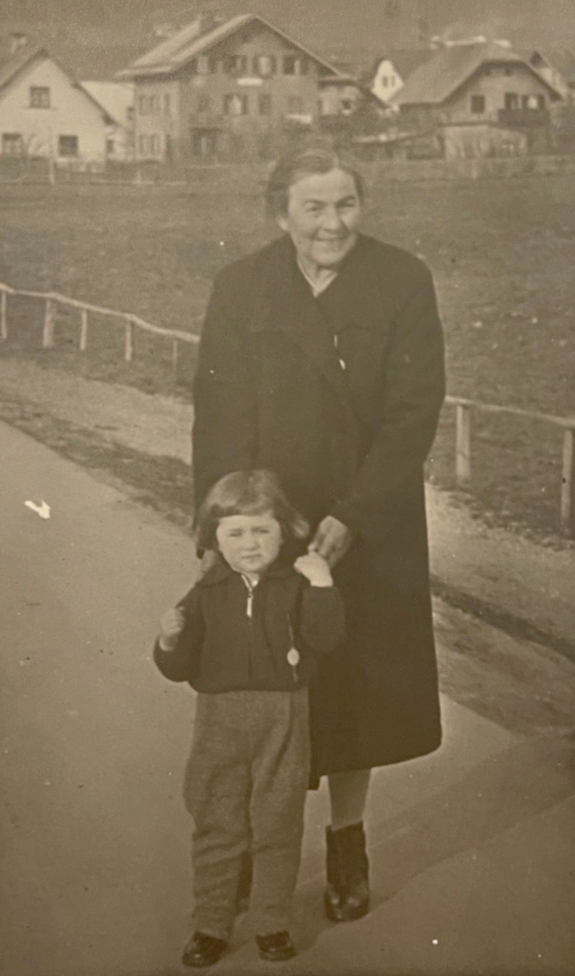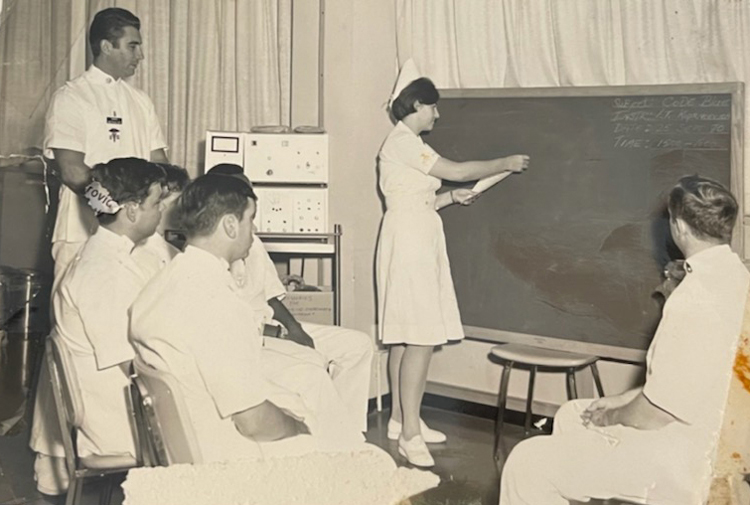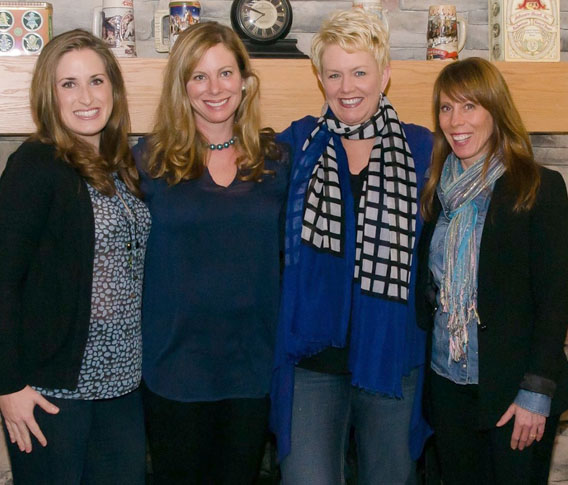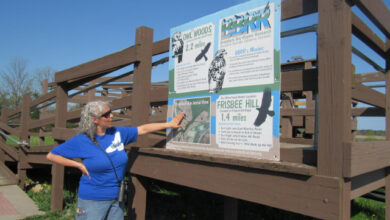From refugee to selfless, serving veteran
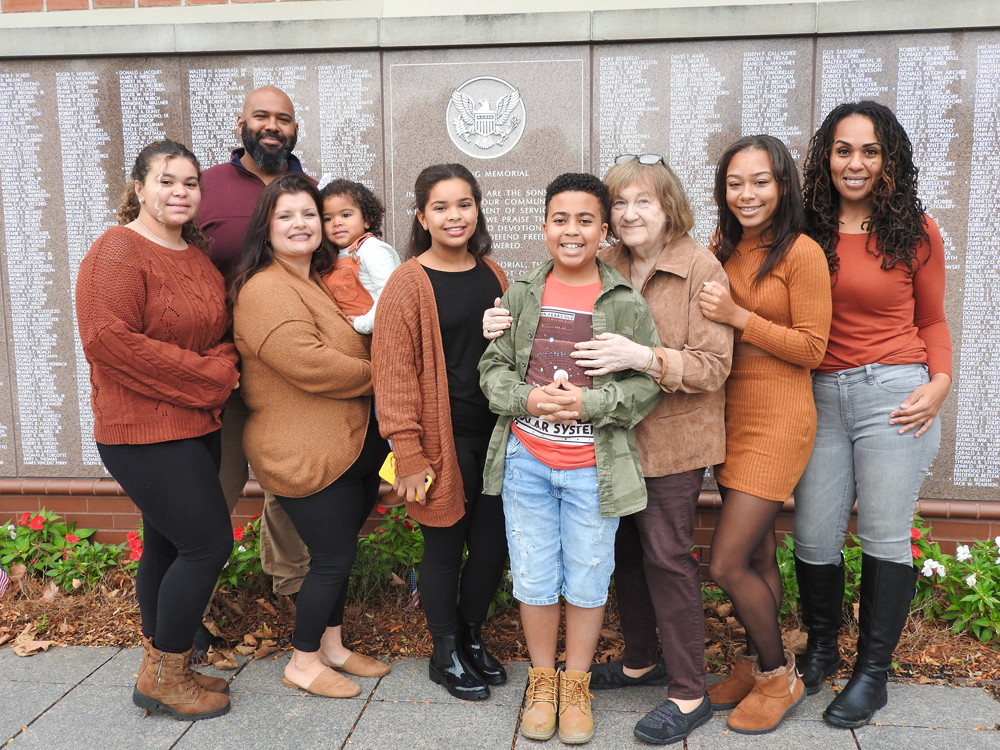
Veterans Day is a day to be mindful of the bravery and heroism of the men and women who have served our country. It is a day where we are reminded to show our gratitude and respect for those who have served in the United States Armed Forces.
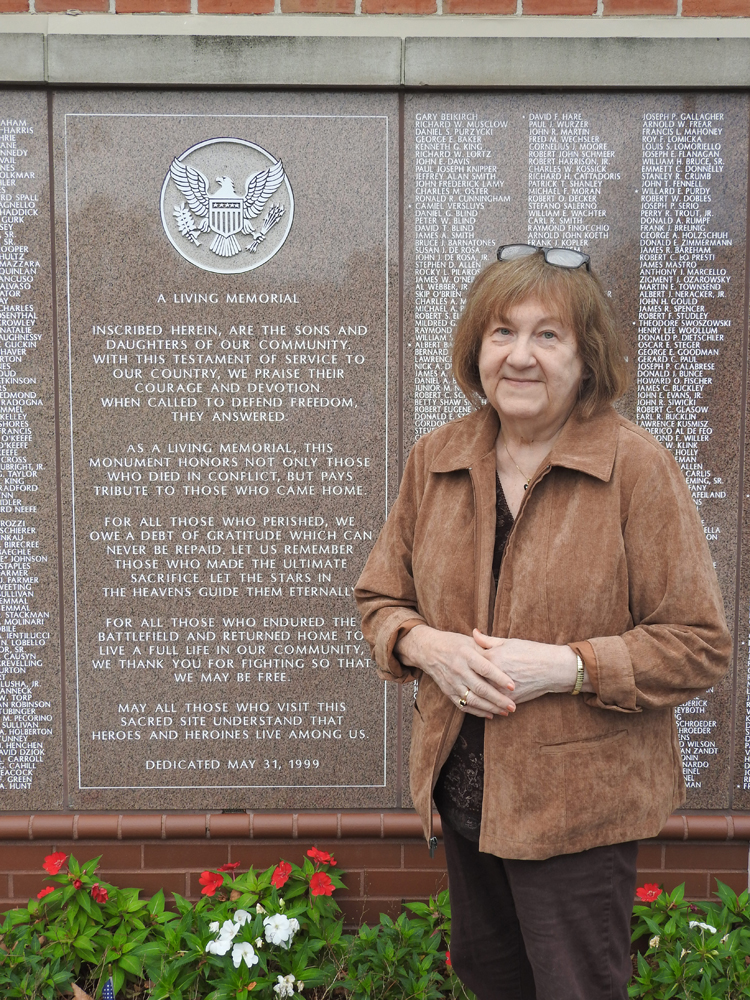
Photo by Karen Fien
Greece resident, Olga Koprivcevic Ocholi, started her life very differently than what most U.S. veterans experience. Her childhood was spent fleeing the terror of Hitler’s regime. She was born in Sarajevo, Bosnia, in 1943, and early in her childhood, the Nazi factions came into her town to seize and kill. The Nazis murdered her father and uncles, and her grandfather was placed in a concentration camp for protecting Jewish residents of a nearby community. Most of her family was murdered as the Nazi factions stormed Sarajevo to conquer and kill Jews and Jewish sympathizers.
Right before Olga escaped Bosnia, a bombing airstrike took place. Her grandmother hid Olga and her mother in the basement, covering her just as a bomb landed nearby. Miraculously it never detonated. “Angels were definitely looking out for them,” said Kristina Ocholi, Olga’s daughter. Olga, her mother, and grandmother took the last train out of Bosnia, fleeing for their lives as they went into hiding in the Austrian Alps until World War II ended. They were placed in refugee relocation camps, and Olga’s mother, who spoke eight languages fluently, became a U.S. translator.
Her work translating Yiddish afforded the family the opportunity to be sponsored by an American Colonel to come to the U.S. to start a new life with freedoms and safety at a time when the borders were closed to immigration.
When Olga was seven years old, the three generations of women came to America. They lived on a farm in Cornwall, Connecticut. The women were housekeepers on the farm. “It was a beautiful place to live,” said Olga as she reflected. Her mom eventually married the farm foreman, and they relocated to another farm near Ithaca, New York.
Olga went to High School in Ithaca and had dreams of attending Cornell University to be a veterinarian, but her family could not afford it. She received a scholarship to attend nursing school. Olga spent a year at the University of Rochester, a year in New York City, then worked a year as a psychiatric nurse at Willard Asylum for the Chronic Insane. “It was barbaric working there,” Olga recalled. Having witnessed the brutal treatment of patients in that facility, Olga decided to leave that type of nursing. She went to New York University Medical Center, where she worked for five years.
After losing some friends in the military during the Vietnam War, Olga decided to use her nursing skills to show her gratitude to America for allowing her citizenship. She willingly enlisted in the United States Army in 1970, at a time many were being drafted involuntarily to serve. “My desire was to pay back this country for adopting me,” Olga said. She was grateful for those who saved her life by helping her escape the horrors of her childhood and for America giving her a chance to live in a free country. “Serving during the Vietnam War was my way of saying thanks,” Olga said.
In the Army, Olga’s job was working with the Army Nurses Corps. Having a college degree allowed her to enlist as an officer, First Lieutenant. She went through basic training in San Antonio, Texas, and soon deployed to NATO Belgium. She served as a nurse at a hospital in Brussels that provided medical care to all NATO nations who had servicemen and women injured in Vietnam.
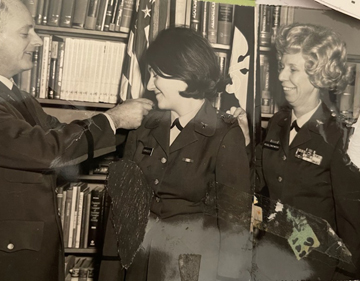
Olga’s military tour brought her to the same region she fled from as a little girl. She was promoted to Captain and traveled through Belgium, Germany, and the Netherlands. Olga unexpectedly found the gift of reconciliation with her traumatic childhood while serving the country she wanted to thank.
During her deployment, she visited many areas throughout the region. She visited wooded areas and remote locations where she was stowed away as a child. She revisited a place she lived where she remembered having makeshift walls, consisting of a rope and a blanket. She toured a place where she once lived that was later converted into military barracks. This time Olga could walk through these locations, not as a little refugee girl hiding for her life, but as a free American there to help others. “I enlisted to help others, and I never expected to receive the reconciliation and healing from my own childhood,” she said.
Serving in the U.S. Army helped her not only make peace with her past but to develop focus and discipline as well. It gave her a chance to see the world from a different perspective – as a person who was giving help rather than needing help as she had as a child.
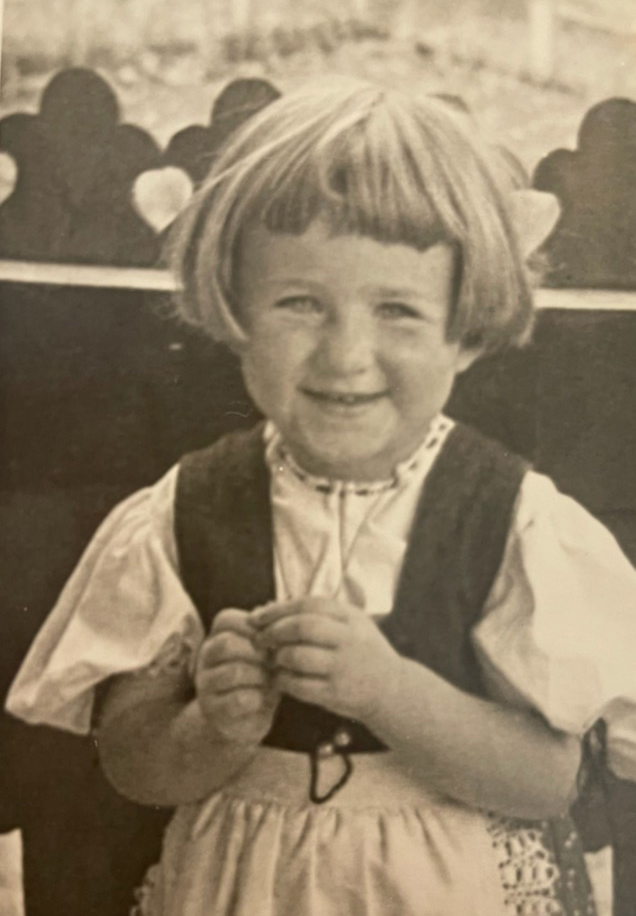
Olga returned to the family farm after her enlistment ended. She eventually moved to the Rochester area to attend college. She worked part-time at the Rochester Psych Center while attending college at St. John Fisher. She later transferred to SUNY Brockport, where she met her husband, Justus Ocholi, an international student from Kenya. He was at the school attending classes and teaching Swahili. He asked Olga to help him type his papers, and their friendship eventually bloomed into a marriage and family. They settled in the Rochester area and had a son Vincent and daughter Kristina.
Olga relocated to Greece, where she finished out her nursing career helping those struggling with addiction at the Chemical Dependency Unit at Unity Hospital. She retired in 2010.
Olga is now a grandmother of seven. “I am relaxing and spending time on what I enjoy, my family.” The traumatic start to Olga’s life, fleeing Nazism and escaping the bloodshed by the Nazi government, allowed her to experience the remarkable kindness of strangers. “So much help was given to us, and that allowed us to survive. We moved a lot and were incognito, and so many helped to bring us to safety and then to America.”
Olga learned that being wealthy did not make people happy. “Giving and helping others, no matter how much or how little you have, and treating them humanely is the true value of life,” she said. That message, imprinted across Olga’s lifetime, has also been imprinted on her family as she modestly spent her career caring for others.
“My mom has been through so much in fleeing her home and coming to America as a refugee and then serving during the Vietnam War by choice. She is my greatest role model, as a humble servant, always giving of herself and never wanting any credit. The greatest teacher of my life is watching how my mom has lived hers,” Kristina said.
